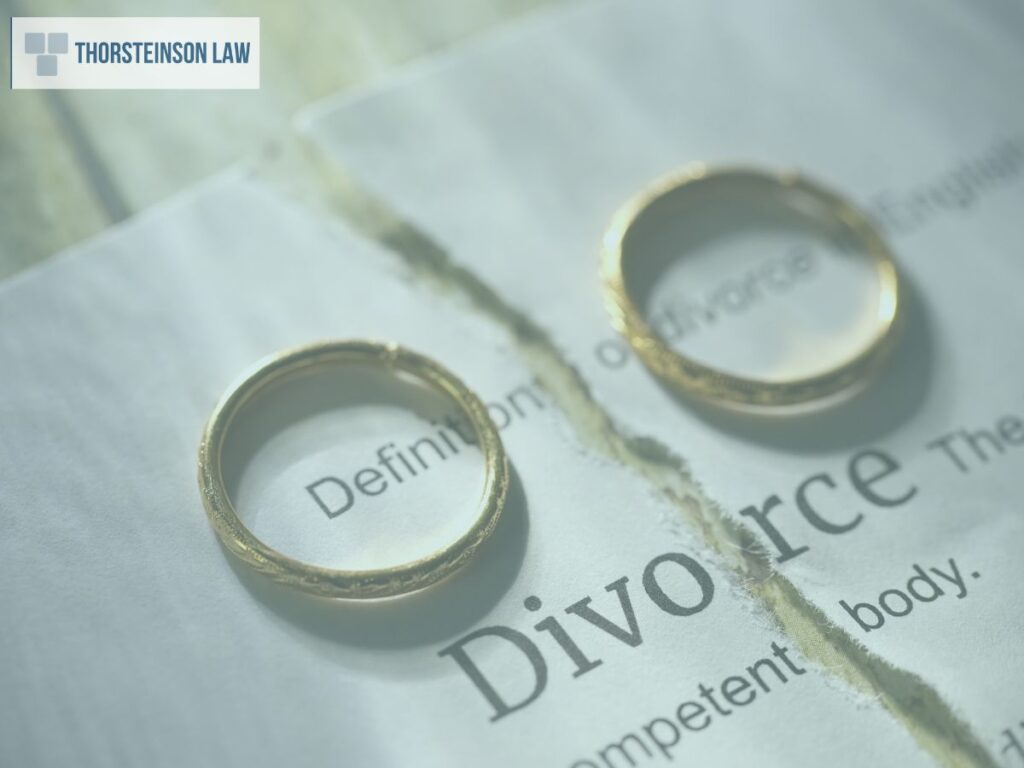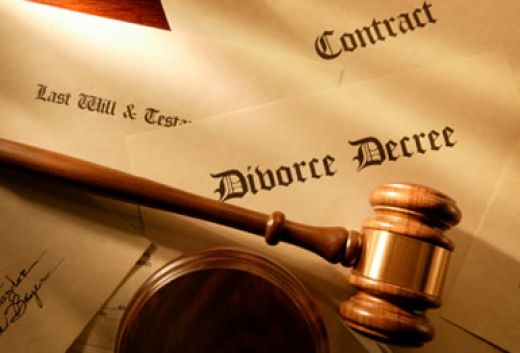What to Expect When Hiring a Divorce Lawyer
Hiring a divorce lawyer is a significant step in navigating the legal complexities of ending a marriage. Whether your divorce is amicable or contentious, having an experienced divorce lawyer by your side ensures that your rights and interests are protected. From the initial consultation to the final settlement, understanding what to expect can help ease the stress of the process.
A divorce lawyer will assess your situation, explain legal options, and guide you through paperwork, negotiations, and court proceedings if necessary. They will also help with critical matters such as child custody, asset division, and spousal support. By knowing what to expect when working with a divorce lawyer, you can make informed decisions and approach the process with greater confidence.
Understanding the Role of a Divorce Lawyer
A divorce lawyer plays a vital role in guiding individuals through the legal complexities of ending a marriage. They provide legal representation, ensure fair settlements, and help clients navigate issues like child custody, asset division, and spousal support. By understanding their responsibilities, you can better appreciate how they can protect your interests during this challenging time.

Legal Guidance
A divorce lawyer provides essential legal advice tailored to your specific situation. They help you understand your rights, obligations, and the legal implications of decisions related to child custody, property division, and spousal support. Since divorce laws vary by state, an experienced lawyer ensures that you comply with local regulations while working toward a favorable outcome. They also explain different legal options, such as mediation, collaborative divorce, or litigation, helping you make informed choices throughout the process.
Negotiation Support
Divorce settlements often involve complex negotiations, especially when emotions run high. A divorce lawyer acts as your advocate, working to secure fair agreements on asset division, child support, alimony, and custody arrangements. They use their experience to mediate discussions, prevent conflicts from escalating, and reach amicable resolutions whenever possible. If direct negotiation with your spouse is difficult or unproductive, your lawyer can communicate on your behalf, ensuring your interests are properly represented.
Document Preparation
The divorce process requires extensive legal paperwork, and any mistakes can lead to delays or unfavorable rulings. A divorce lawyer handles all necessary documents, including divorce petitions, financial disclosures, custody agreements, and settlement papers. They ensure that everything is filed correctly and on time while also responding to any motions from the opposing party. Proper documentation is essential for a smooth legal process and helps prevent future disputes over overlooked details.
Court Representation
If a divorce case proceeds to court, having a skilled divorce lawyer is crucial. They prepare strong legal arguments, present evidence, cross-examine witnesses, and advocate for your best interests before a judge. Court procedures can be complex and intimidating, but an attorney ensures you are prepared and understand what to expect. Whether you are contesting financial matters, custody rights, or other legal issues, your lawyer fights for a fair resolution while ensuring compliance with courtroom protocols.
Emotional Support
While a divorce lawyer is not a therapist, they play an important role in providing stability and reassurance during an emotionally taxing time. They offer objective advice, helping you make logical decisions rather than acting on impulse or emotion. By handling legal complexities, they allow you to focus on rebuilding your life with confidence. Having a trusted legal professional by your side can make the entire divorce process less overwhelming.
The Initial Consultation: What to Prepare
The first meeting with a divorce lawyer is essential for assessing your case and setting expectations. To make the most of this consultation, it’s important to bring necessary documents such as financial records, prenuptial agreements (if applicable), and any relevant legal paperwork. Be prepared to discuss your marriage history, current living arrangements, and desired outcomes regarding asset division and child custody. A divorce lawyer will use this information to outline possible legal strategies and explain the next steps in your case.
Legal Fees and Costs: What to Expect
Understanding the financial aspect of hiring a divorce lawyer is crucial. Legal fees can vary based on experience, location, and case complexity. Some lawyers charge a flat fee for uncontested divorces, while others bill hourly for more complicated cases. Additional costs may include court filing fees, mediation expenses, and expert witness fees if required. During the initial consultation, a divorce lawyer will explain their fee structure and provide a general estimate of the costs involved.
How a Divorce Lawyer Handles Paperwork and Filing
Handling legal paperwork is one of the most critical aspects of the divorce process. A divorce lawyer ensures that all necessary documents are correctly prepared, filed, and submitted on time, preventing costly delays or legal complications. From the initial petition to the final settlement, proper documentation is essential for a smooth and efficient divorce process.
Preparing Divorce Petitions
The divorce petition is the official document that initiates the divorce process. A divorce lawyer drafts this legal filing, ensuring it includes all necessary details, such as the grounds for divorce, requests for child custody or support, and asset division preferences. The petition must be filed in the appropriate court and properly served to the other spouse. Any errors in this document can lead to delays or legal challenges, so having a lawyer prepare it ensures accuracy and compliance with state laws.
Financial Disclosures
Both spouses are required to provide full financial disclosures during a divorce. A divorce lawyer helps collect, organize, and submit detailed records of income, assets, debts, and expenses. These documents play a crucial role in determining fair asset division, spousal support, and child support payments. Ensuring accuracy in financial disclosures prevents future disputes and helps the court make informed decisions. If a spouse attempts to hide assets, a lawyer can work with financial experts to uncover any discrepancies.
Custody and Support Agreements
When children are involved, custody and support agreements are critical components of the divorce process. A divorce lawyer drafts legal documents outlining child custody arrangements, visitation schedules, and child support obligations. These agreements must comply with state laws and prioritize the child’s best interests. If disputes arise, the lawyer negotiates terms that align with their client’s parental rights while ensuring a stable and supportive environment for the child.
Filing Motions and Responses
Throughout the divorce process, various legal motions and responses may be required. A divorce lawyer prepares and files motions for temporary orders regarding child custody, spousal support, or restraining orders if needed. They also draft responses to motions filed by the opposing party, ensuring their client’s rights are protected. Timely and accurate filings help keep the case on track and prevent unnecessary delays.
Finalizing Divorce Decrees
Once all aspects of the divorce are settled—whether through negotiation, mediation, or trial—the final divorce decree is prepared and submitted for court approval. A divorce lawyer ensures that all agreements related to property division, child custody, spousal support, and other legal matters are clearly outlined and enforceable. After the judge signs the decree, the lawyer provides guidance on post-divorce legal obligations and ensures compliance with the court’s orders.
Negotiating Child Custody and Support Agreements
Child custody and support are often the most emotionally charged aspects of a divorce. A divorce lawyer assists in negotiating custody arrangements that prioritize the child’s best interests while considering both parents’ rights. They also help determine fair child support payments based on income, expenses, and state guidelines. If disputes arise, a divorce lawyer can represent their client in court to advocate for a favorable outcome in custody and support agreements.
Dividing Assets and Property with Legal Guidance
Property division can be one of the most complex parts of a divorce. A divorce lawyer helps clients navigate asset distribution by identifying marital and separate property, assessing financial records, and negotiating fair settlements. They ensure that assets such as real estate, retirement accounts, businesses, and debts are divided according to state laws. In high-conflict cases, a divorce lawyer may work with financial experts to ensure a fair and transparent division of assets.
The Court Process: How a Divorce Lawyer Represents You
If a divorce case goes to court, having a skilled divorce lawyer is essential. They present arguments, submit evidence, and cross-examine witnesses to support their client’s case. A divorce lawyer also prepares clients for court appearances, ensuring they understand legal procedures and expectations. Whether advocating for fair asset division, custody arrangements, or spousal support, their role in court is to secure the best possible outcome while adhering to legal protocols.
Secure Your Future: Benefits of Hiring a Divorce LawyerConclusion
Hiring a divorce lawyer is a crucial step in protecting your rights and securing a fair outcome during a divorce. From handling legal paperwork to negotiating child custody and asset division, an experienced attorney provides guidance and support throughout the process. Understanding what to expect can help ease stress and prepare you for each stage of your case.
If you’re seeking a dedicated divorce lawyer in Long Beach, CA, Thorsteinson Law Group is here to help. Contact us today to schedule a consultation and discuss your legal needs.





